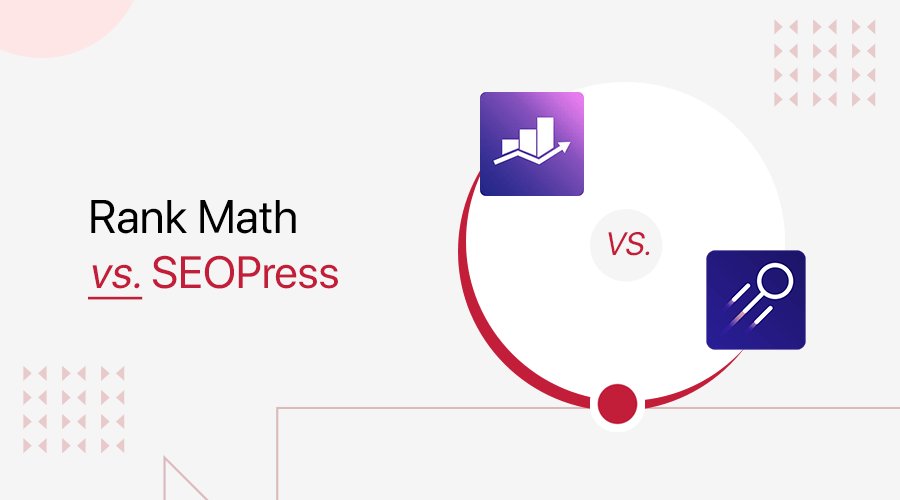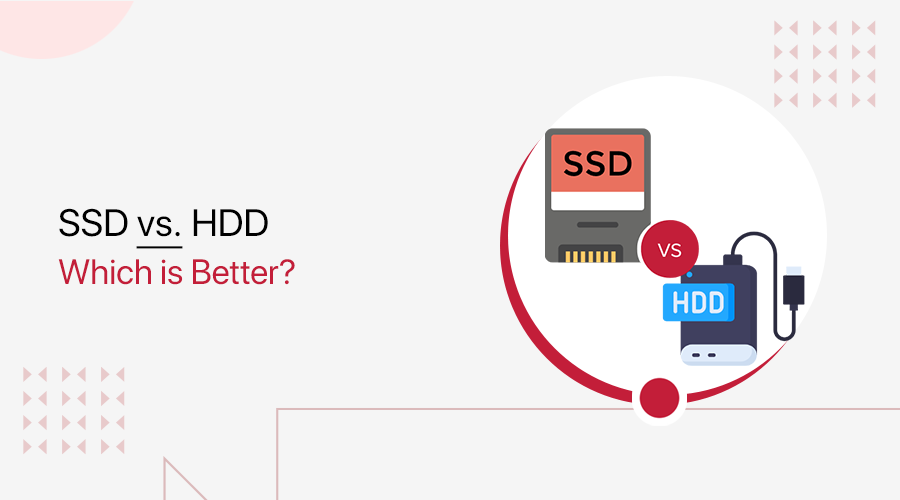
When it comes to web hosting, the battle between SSD vs HDD hosting is ongoing. And if you’re confused too, then you’ve come to the right place.
These two storage technologies are the engines behind your website’s performance. Today even milliseconds can determine your website’s success. So, choosing the right hosting solution is not a matter to be taken lightly.
While SSD (Solid State Drive) has lightning-fast data retrieval speeds and unparalleled efficiency, it has stormed onto the hosting scene. Challenging the traditional HDD (Hard Disk Drive) that has long held sway.
But is speed the only factor to consider? It’s not, so, let’s dive deeper and you’ll uncover a web hosting real differences.
Let’s get started!
A. Understanding SSD Hosting
In SSD hosting, your data is stored in a series of memory cells, like stacking books on a shelf. Retrieving information is like plucking a book from a shelf, quick, efficient, and with minimal effort.
When you think about SSD hosting, it’s like moving your data really fast in the digital world. This is because SSDs don’t have any moving parts and they use electricity to store and retrieve data.

In addition to speed, SSDs contribute to lower power consumption and heat generation. So, making them an environmentally friendly choice.
So, SSD hosting stands out for its speed, durability, and eco-friendliness. Its efficient performance can elevate your website’s functionality and, consequently, its success.
B. Advantages of SSD Hosting
SSDs have revolutionized the world of data storage and hosting. It presents several significant advantages, making it a popular choice for hosting.
Let’s delve into the compelling advantages of SSD hosting that set it apart.
- SSDs process data at better speeds, boosting website loading times and user experiences.
- Also, SSDs have no moving parts, minimizing failure risks and ensuring consistent performance over time.
- It also consumes less power, reducing operational costs and making them environmentally friendly options.
- Solid-state drives are sturdy, making them ideal for mobile and rugged environments without compromising performance.
- Generates minimal heat and noise, enhancing the overall working environment and system longevity.
- You’ll have quick access to data, facilitating faster file transfers and database queries for a seamless user experience.
- Also, constantly evolving, promising advancements, and staying at the forefront of hosting technology.
Stay tuned for the continuation of this SSD vs HDD hosting article. Where we’ll explore the intricate workings of HDD hosting and conduct a detailed comparison.
Explore our article on the best SSD hosting provider.
C. Understanding HDD Hosting
In HDD hosting, your data is stored on spinning magnetic platters, like placing data on a rotating disk. So, retrieving information involves the physical movement of read/write heads. Which introduces a slight delay.
Besides, considering HDD hosting, you’re opting for a more conventional data storage approach. Also, the presence of moving parts and reliance on mechanical components means data access is relatively slower.
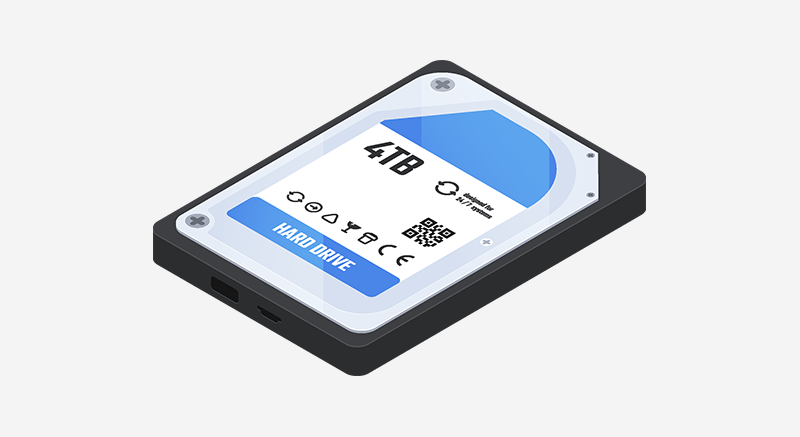
Additionally, HDDs tend to consume more power and generate heat. Making them less energy-efficient and environmentally friendly.
In summary, HDD hosting is characterized by its slower speed, mechanical components, and relatively higher power consumption. While it can still serve as a cost-effective storage solution, it may not provide the optimum level of performance.
D. Advantages of HDD Hosting
Although it’s a traditional technology, it comes with significant advantages.
- Offers significantly larger storage capacities, making them suitable for storing extensive amounts of data.
- Also, this technology has been around for a long time and is well-tested, trusted, and widely adopted.
- They are excellent for data archiving and long-term storage due to their cost-effectiveness and capacity.
- You can use HDD with older hardware, making them a practical choice for backward compatibility.
- Plus excels in sequential read/write operations, making it suitable for specific data-intensive tasks.
You can also get more ideas with our article on the best hosting providers.
Now let’s head to the real deal, differences between SDD and HDD hosting.
E. Real Differences Between SSD vs HDD Hosting
Let’s go through the real difference between SSD and HDD hostings.
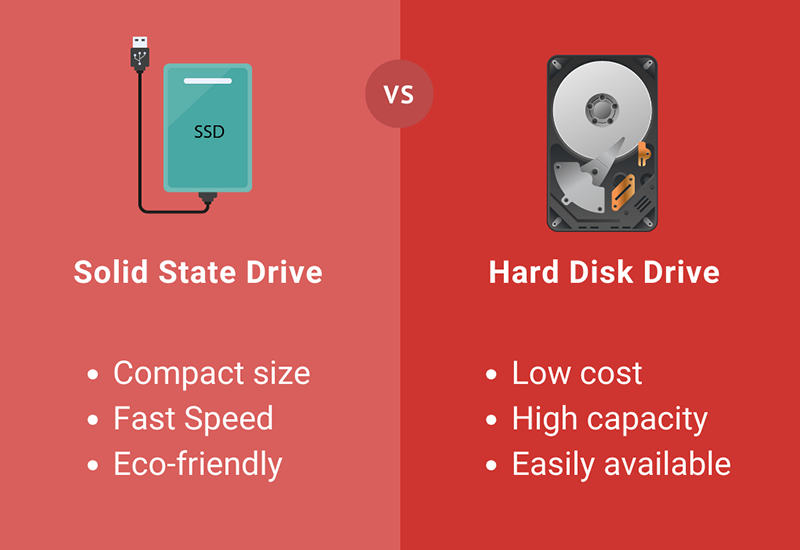
1. Speed Comparision Between SSD vs HDD Hosting
If web hosting were a race, speed would be the finish line. So, let’s break down the speed differences between SSD and HDD hosting.
SSD Hosting
Solid State Drives are like the Usain Bolt of storage devices (on average speeds over 500 MB/s). They rely on flash memory, which means no spinning disks and no delays. Your website loads faster than you can say “click.”
Here’s why your SSD hostings are faster:
- Data retrieval from SSDs is like finding a book in a well-organized library.
- Writing data to SSDs is swift, like typing on a high-speed keyboard.
- SSDs help your website start up quickly, like a fast car ignition.
So, whether you’re running a blog or an online store, users will appreciate the speed boost.
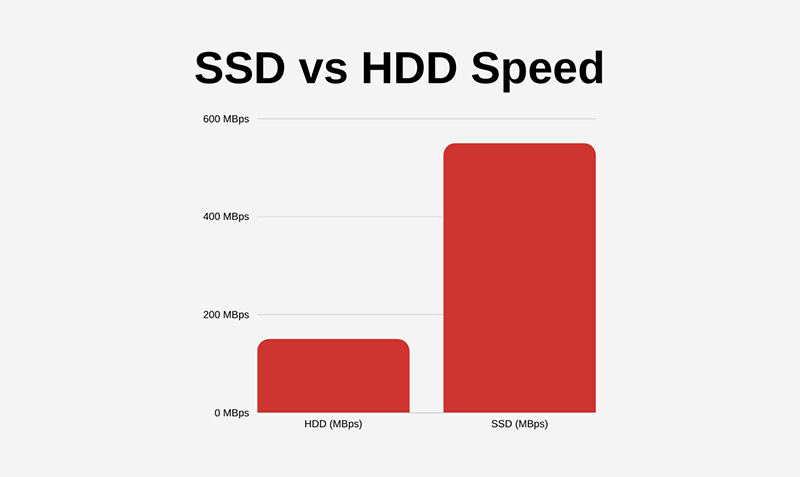
HDD Hosting
Hard Disk Drives, on the other hand, are the marathon runners (offer speeds on average of 150 MB/s). They use spinning disks and mechanical arms to read and write data.
Here’s why they perform slowly in comparison to SSDs.
- They have a speed limit due to their physical nature, unlike SSDs.
- Data can become scattered on the disk, slowing down access.
- Also, HDDs need time to find the right data location.
- Plus, over time, mechanical wear can decrease performance.
- Large files can be slower to load due to sequential reading.
The Verdict – SSD has the Speed
SSD hosting is the clear winner when it comes to speed. It’s like having a sports car for your website, ensuring your visitors get a seamless experience. HDD hosting, while reliable, can’t match the speed of SSDs.
So, if you want your website to zoom through the digital highway, SSD hosting is the way to go. You’ll leave HDD hosting in the dust!
2. Reliability and Storage
Next, we’ll dive into the critical aspect of hosting that is, reliability and storage. Reliability is like the dependable foundation of a sturdy house. It ensures your website is always online, never leaving visitors in the digital wilderness.
Now, storage, well, think of it as your website’s closet, where all your precious files and data are neatly organized. The more storage you have, the more stuff you can store.
Together, reliability and storage are like best friends. Working to keep your website safe, secure, and ready for visitors.
Reliability
SSD hosting relies on solid-state drives, which are essentially large-scale memory chips. These drives have no moving parts, and this simple fact confers them with remarkable reliability.
Here are some reasons why SSD hostings are reliable.
- SSDs are less likely to crash, ensuring consistent website performance.
- Also, they use less power, reducing electricity costs.
- Plus, SSDs have a longer lifespan compared to traditional hard drives.
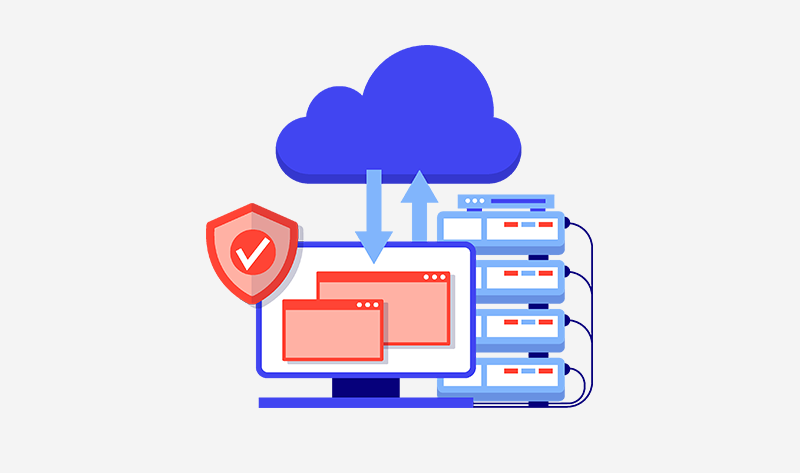
On the other hand, HDD hosting employs traditional mechanical hard drives with spinning platters and read/write heads. While they’ve served us well for decades, the moving components can be prone to wear and tear over time.
Here are some reasons why you need to choose SSD over HDD:
- HDDs can be easily damaged by physical shocks or drops.
- They also have a shorter lifespan compared to SSDs.
- Also, they consume more power, increasing hosting costs.
- Additionally, HDDs can be noisy due to their moving parts.
Storage Space
When it comes to storage capacity, HDDs have traditionally held the upper hand. These drives can offer terabytes of storage space without breaking a sweat.
So, if your website requires massive storage capacity for hosting large files, HDD hosting might seem tempting.
However, SSDs have made significant strides in the storage department as well. While they may not match the storage capacities of HDDs. However modern SSD hosting solutions can still offer ample space for most websites.
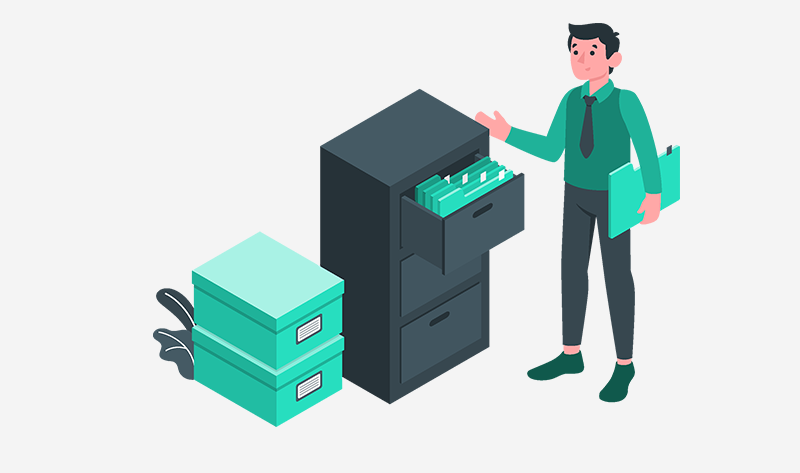
Think of your website as a library and your hosting solution as the bookshelves. HDDs are like dusty old bookshelves that can hold a vast number of books. But takes ages to find a specific one.
SSDs, on the other hand, are like state-of-the-art bookshelves with a dynamic sorting system. Allowing you to access your books instantly.
The Verdict – Tie
In the SSD vs HDD hosting showdown, reliability and storage play crucial roles. While HDDs boast massive storage capacities, SSDs shine in terms of reliability. Offering a hassle-free hosting experience.
3. SSD vs HDD Power Consumption
The often-overlooked aspect of power consumption plays a vital role in shaping the hosting landscape. So, choosing an efficient hosting provider is like getting energy-saving appliances for your online home.
It not only helps your site run smoothly but also keeps your online energy bill in check. Let’s get into this electrifying showdown.
SSD – Lightning-Fast and Light on Power
SSDs have garnered acclaim for their lightning-fast data retrieval speeds. Beneath their sleek exterior lies a web of NAND (Not AND) flash memory cells. This functions without any moving parts.
This leads to:
- Faster Access: Swift data retrieval means less time for power-hungry processes.
- Low Heat: SSDs produce less heat, reducing the need for cooling, which saves power.
- Silent Operation: No noise means less energy is required for cooling and ventilation.
- Instant Boot: Faster startup times mean less time spent using power to boot up.
These factors make SSD hosting more energy-efficient compared to traditional HDDs. Thus reducing the need for energy-hungry cooling systems.
The Power-Hungry HDD Hosting
On the contrary, the HDD presents itself as a power-hungry system in the hosting world. It employs spinning platters and read/write heads to access data. It’s a process that demands a considerable amount of energy.
Here’s a list explaining why HDD hosting consumes more power in simple terms:
- Spinning Disks: HDDs have physical spinning disks inside that need continuous power to operate.
- Friction: Friction from moving parts generates heat, demanding more cooling and power.
- Inefficient Data Access: Retrieving data from scattered locations consumes extra power.
- Limited Energy Efficiency: HDDs aren’t as energy-efficient as newer SSDs.
Think of an old train, like a steam locomotive, running on tracks. It burns a lot of fuel and releases steam as it moves. This is like how an HDD consumes power and uses a lot of energy.
Besides, the constant spinning of disks not only generates heat but also necessitates robust cooling solutions. Hence increasing the energy draw.
The Verdict – SSD is the Winner
In the SSD vs HDD, power consumption emerges as a clear differentiator. SSDs, with their lack of moving parts and frugal energy appetite, stand as champions of efficiency.
On the flip side, HDDs, while robust and cost-effective, cannot escape the label of overpowering consumption.
4. Guarding Your Data
Data is the lifeblood of businesses and individuals alike. Whereas, protecting this precious resource is important. Let’s explore how well SSD vs HDD do in safeguarding your valuable information.
Starting with SSDs, they’re the modern fortresses when it comes to data protection. These robust storage devices utilize NAND flash memory cells. This prevents physical shock and vibration. This means your data is shielded from the impact of unexpected mishaps.

Moreover, without mechanical parts, it enhances durability. Also minimizes the risk of data loss due to wear and tear. Hence, your data remains safe and sound, snug within the secure confines of an SSD.
On the other side, HDDs serve as security providers with less safety. The spinning platters and read/write heads make it susceptible to physical damage. Also, a sudden bump or drop can disrupt security, potentially leading to data loss.
The Verdict – Safety in the SSD Hosting
When it comes to guarding your data, SSDs emerge as the undisputed champions. Their solid-state nature, devoid of moving parts, makes them protectors against physical damage.
HDDs continue to offer cost-effective storage solutions. But they demand a more gentle touch to prevent potential data calamities.
5. Eco-friendly Hosting
Eco-friendly hosting is like using green energy to power your website. Instead of polluting the internet with carbon emissions, these hosting providers use clean, renewable energy sources.
So, when you choose eco-friendly hosting, you’re building a greener, cleaner future for all. Let’s explore the eco-friendly aspects of SSD and HDD hosting.
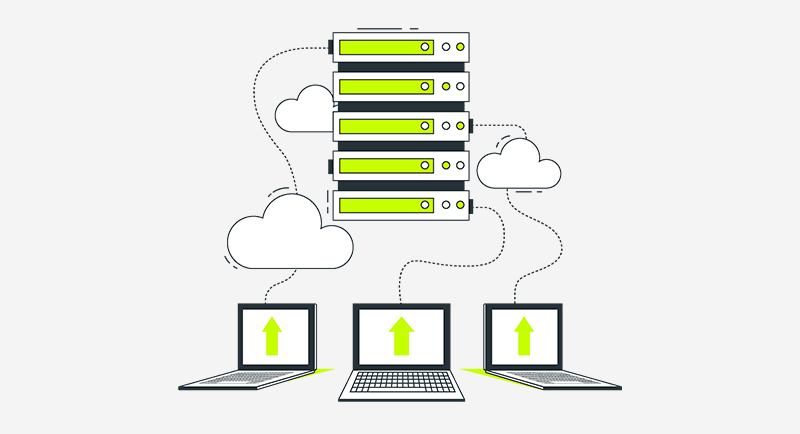
SSDs are like the energy-efficient light bulbs of hosting. They’re champions in the race to reduce environmental impact. Because, SSDs draw less power, making them kind to both your electricity bill and the environment.
They are also:
- The silent workers save your ears from the constant whir of spinning disks.
- Also, with their extended lifespan, SSDs help cut down on electronic waste.
On the contrary, HDDs are eco-conscious contenders. While they’ve improved their power efficiency, they still can’t match SSDs in this regard.
Because of the following reasoning:
- HDD hostings use spinning disks, consuming more electricity.
- They generate heat, requiring extra cooling, which adds to energy consumption.
- Manufacturing HDDs has environmental impacts due to resource extraction and production processes.
- Also, HDDs have a limited lifespan, leading to more electronic waste.
The Verdict – SSD Leads the Green Charge
In the battle of SSD vs. HDD hosting, the verdict is clear. SSDs are the greener choice!
So, if you want to be kind to the planet while hosting your website, consider the eco-friendly embrace of SSDs.
6. Cost Analysis Between SSD vs HDD Hosting
In the ever-evolving landscape of hosting solutions, the choice between SSD and HDD hosting isn’t just about speed and performance. Cost considerations play a vital role in determining which hosting option aligns with your budgetary compass.
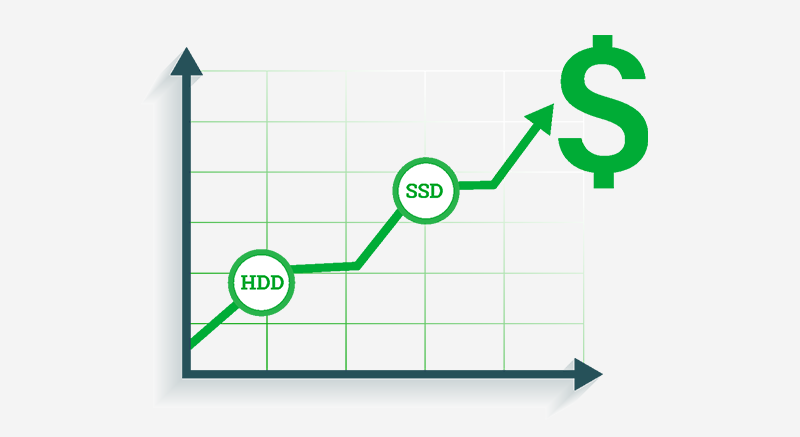
Certainly, while HDDs may still have a slight upfront cost advantage over solid-state storage SSDs, the landscape is evolving. Choosing SSDs over HDDs isn’t just a matter of cost.
It’s an investment in better performance and improved SEO (Search Engine Optimization) rankings. Over time, SSDs prove to be a wise choice. Paying dividends through enhanced speed and reliability.
The Verdict – SSD Wins
While HDDs may seem a tad cheaper initially, the price gap between SSDs and HDDs in web hosting is narrowing. The extra cost of SSDs is a worthwhile investment in the security and reliability of your website’s data.
So, this is the end of our comparison article.
In the grand SSD vs HDD hosting showdown, both contenders have their merits and quirks. The key is to find the balance that suits your wallet and your hosting requirements.
After all, in the world of hosting, it’s not just about how fast you go. But it’s also about how far your budget can take you.
So, whether you’re going with SSDs or HDDs, pick the one that provides you smooth sailing.
F. Final Verdict – Which is Better?
In the SSD vs HDD hosting showdown, let’s wrap it up with a verdict!
SSD Hosting
- Solid State Drive hosting offers blazing speed.
- Energy-efficient, keeping your bills as less as possible.
- Also comes with maximum durability.
HDD Hosting
- Wallet-friendly, like a coupon-clipping champion.
- Also offers bulk storage for large websites.
- Prone to power cravings and occasional hiccups.
If you crave speed, efficiency, and durability, SSD hosting is your supersonic ticket to hosting greatness. But if you’re on a budget and don’t mind a bit of the old-school charm, HDD hosting is for you.
In the end, it’s like choosing between a sports car and a trusty old pickup truck. Both get the job done, but it all boils down to your need for speed and your love for your wallet.
Happy hosting!
FAQs on SSD vs HDD Hosting?
1. Is SSD better than HDD for servers?
Yes, SSD is generally better than HDD for servers. SSDs offer faster data access speeds, which results in quicker website loading times and improved server performance. They are particularly beneficial for tasks that involve frequent read-and-write operations.
2. Does integrating SSD improve server speed?
Integrating SSDs can significantly improve server speed. Because SSDs have faster data transfer rates and lower latency compared to HDDs. This means data retrieval and processing happen more quickly, resulting in reduced loading times for websites.
3. What drawbacks come with SSD usage?
While SSDs offer numerous advantages, they do have some drawbacks. The primary drawback is cost, SSDs are generally more expensive. Additionally, SSDs have a limited number of write cycles, but modern SSDs have mechanisms to mitigate this issue.
4. Is HDD more dependable compared to SSD?
HDDs are known for their durability and longevity because they have been around for a long time. However, SSDs have become more reliable with no moving parts. Reducing the risk of mechanical failure. So, both HDD and SSD can be dependable when used appropriately.
5. Can I replace the HDD with an SSD?
Yes, in most cases, you can replace an HDD with an SSD in a server or any other computing device. However, it may require data migration and potentially changing some hardware configurations. Ensure compatibility with your server and back up any data before switching.
Conclusion
And there you have it, folks! We’ve reached the finale of our SSD vs HDD hosting showdown.
Hopefully, this battle of storage solutions has helped you with the knowledge you need to make the ultimate hosting decision. But keep in mind, your website is like a one-of-a-kind. And the perfect hosting depends on your website’s unique requirements.
So, dive into the differences, balance those pros and cons, and envision your website’s journey to success. And if the hosting still has you puzzled, don’t hesitate to express your questions in the comments below. We’re to save your day!
Also, do explore our other article on the best web hosting services for affiliate marketers and the best web hosting services for photographers.
Lastly, do follow us on our social media handles Facebook and Twitter to stay updated with our content.

